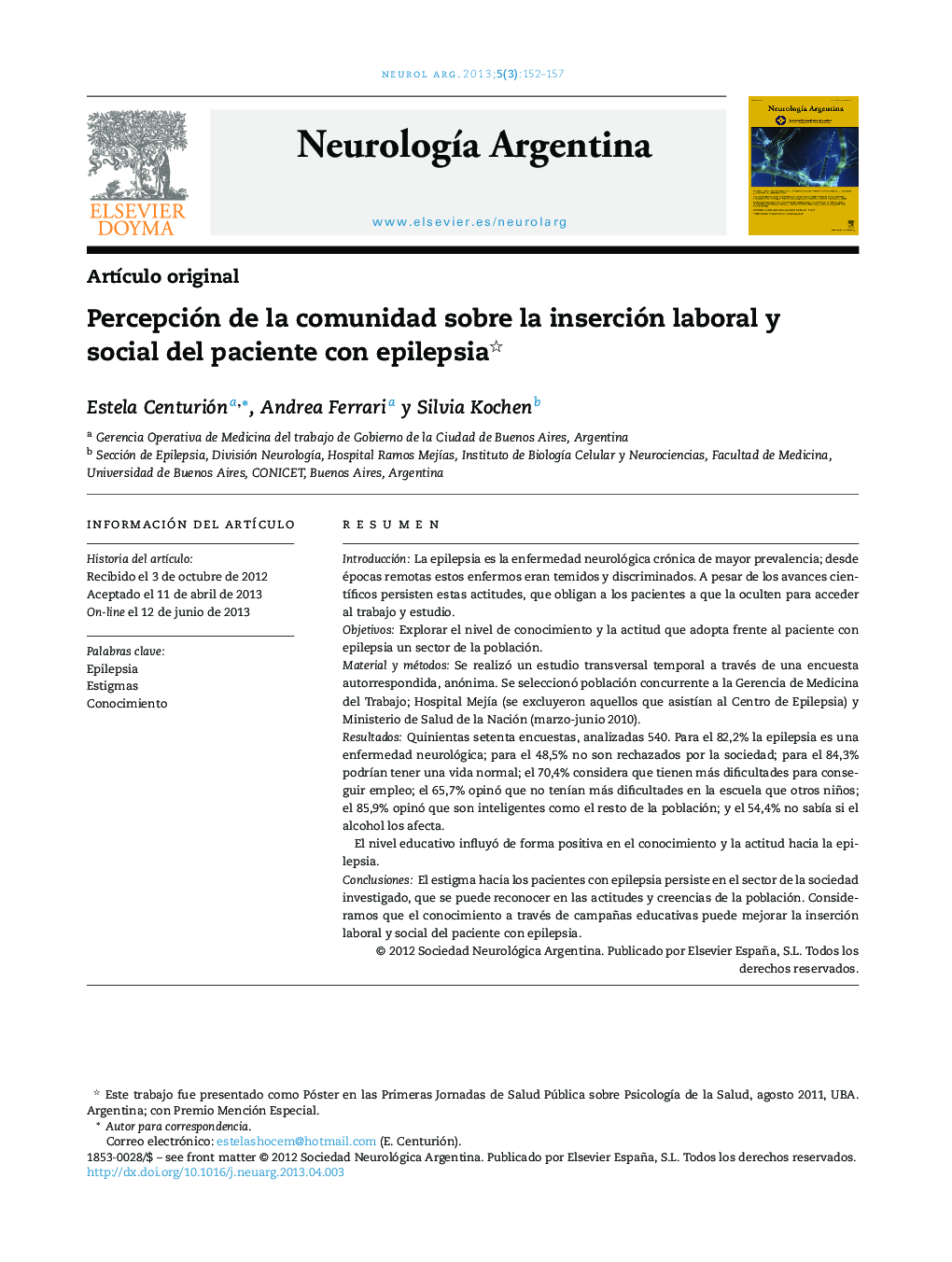| Article ID | Journal | Published Year | Pages | File Type |
|---|---|---|---|---|
| 3076605 | Neurología Argentina | 2013 | 6 Pages |
ResumenIntroducciónLa epilepsia es la enfermedad neurológica crónica de mayor prevalencia; desde épocas remotas estos enfermos eran temidos y discriminados. A pesar de los avances científicos persisten estas actitudes, que obligan a los pacientes a que la oculten para acceder al trabajo y estudio.ObjetivosExplorar el nivel de conocimiento y la actitud que adopta frente al paciente con epilepsia un sector de la población.Material y métodosSe realizó un estudio transversal temporal a través de una encuesta autorrespondida, anónima. Se seleccionó población concurrente a la Gerencia de Medicina del Trabajo; Hospital Mejía (se excluyeron aquellos que asistían al Centro de Epilepsia) y Ministerio de Salud de la Nación (marzo-junio 2010).ResultadosQuinientas setenta encuestas, analizadas 540. Para el 82,2% la epilepsia es una enfermedad neurológica; para el 48,5% no son rechazados por la sociedad; para el 84,3% podrían tener una vida normal; el 70,4% considera que tienen más dificultades para conseguir empleo; el 65,7% opinó que no tenían más dificultades en la escuela que otros niños; el 85,9% opinó que son inteligentes como el resto de la población; y el 54,4% no sabía si el alcohol los afecta.El nivel educativo influyó de forma positiva en el conocimiento y la actitud hacia la epilepsia.ConclusionesEl estigma hacia los pacientes con epilepsia persiste en el sector de la sociedad investigado, que se puede reconocer en las actitudes y creencias de la población. Consideramos que el conocimiento a través de campañas educativas puede mejorar la inserción laboral y social del paciente con epilepsia.
IntroductionEpilepsy is a chronic neurological disease most prevalent, since ancient times these patients were feared and discriminated. Despite scientific advances, these attitudes persist, forcing patients to hide it, to go to work and study.ObjectivesTo explore the level of knowledge and their attitude toward the patient with epilepsy a sector of the population.Material and methodsA cross sectional study was conducted through a temporary self-answered survey, anonymously. Population was selected Concurrent Management of Occupational Medicine, Hospital R. Mejia (excluding those attending the Epilepsy Center) and Ministry of Health of the Nation (March-June 2010).Results570 polls analyzed 540. Results: 82.2% for epilepsy is a neurological disease, 48.5% were rejected by society. 84.3% could have a normal life. 70.4% believe they have a harder time getting jobs. 65.7% said they had no difficulty in school than other children. 85.9% felt that they are intelligent as the rest of the population. 54.4% did not know if alcohol affects them.The educational level positively influenced knowledge and attitudes toward epilepsy.ConclusionsThe stigma against people with epilepsy persists in society sector investigated; it can recognize the attitudes and beliefs of the population. We believe that knowledge through educational campaigns can improve employability and social inclusion of patients with epilepsy.
